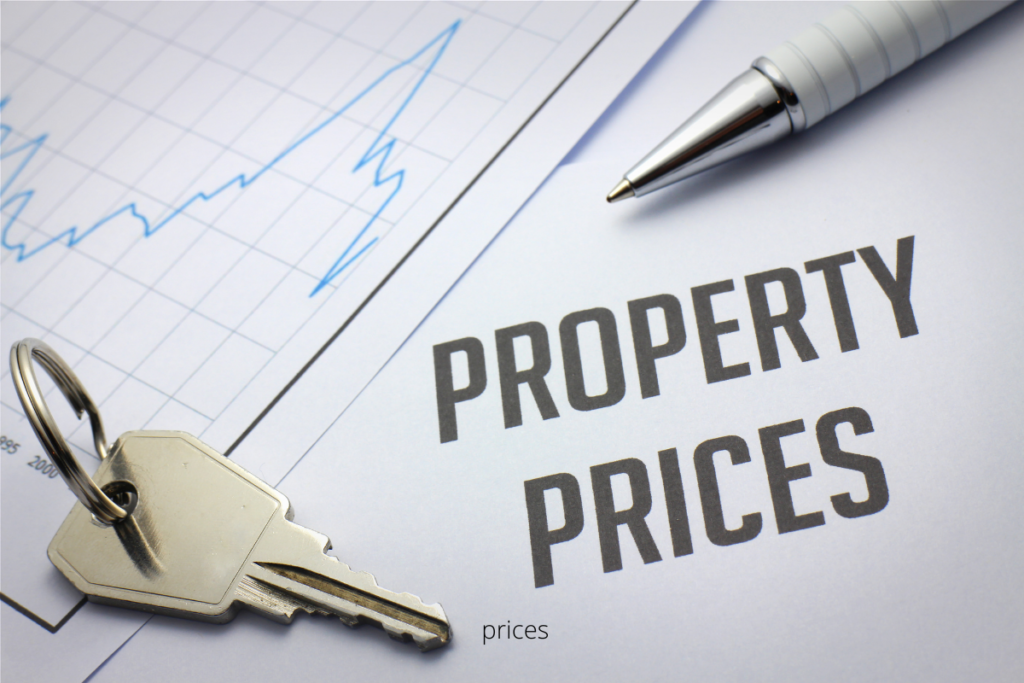One of Australia’s largest banks, Australia, expects property prices to fall by around 10% in 2023 as looming interest rate hikes threaten to derail the market. Economists at both banks are forecasting a 10% drop in house prices next year on the back of an expected hike in interest rates by the Reserve Bank. Economists at the Commonwealth Bank and the National Bank of Australia are forecasting a 10% fall in house prices next year, while Westpac is forecasting a 7% fall in house prices in 2023 and another 5% in 2024. Economists at the National Bank of Australia are forecasting house prices to fall in both 2023 and 2024 after the Reserve Bank raised the official exchange rate.

One of Australia’s largest banks now expects the RBA to start raising interest rates from November 2022, with the official cash rate increasing by 65 basis points to 0.75% by February 2023. Reserve Bank of Australia Philip Low warns that interest rates will rise in the coming years to combat rising inflation. The Reserve Bank is one of the few central banks that has allayed concerns about inflation by insisting that the economy is in a different position. Alan Auster, chief economist at the National Bank of Australia, takes a similar view, predicting a 10% decline in 2023 followed by a 3% rise in 2022.
A research note by CBA head Australian economist Gareth Aird set out an updated view on house prices, departing from banks’ previous expectations that house prices would rise by 7% in 2022 before falling by 10% in 2023. Property prices in Australia will fall by about 10% in 2023 due to the threat of rising interest rates, one of the country’s largest banks predicts. A new report published by ANZ Bank predicts that home prices across the country will rise by 17% through 2021 before falling to 6% in 2022. , based on the latest data from CoreLogic.
Real estate advisory firm Cluttons suggests that prices in parts of London could fall by 10% in 2022, while Foxtons expects London to rise by 1-3%. Home prices in these top 10 markets are expected to rise by 6.9% and sales by 13.1% year on year. Interestingly, all banking economists agree that capital stock is likely to experience strong house price increases over the next few years. Economists say that even with rising mortgage rates and higher prices, the housing market will remain strong due to very tight supplies and increased demand as more millennials are expected to buy homes this year.
The report showed that the housing market continued to be strong despite a drop in home sales, even as mortgage rates rose to their highest levels this year as long-term bond yields rose. Home prices will rise by an average of 4.1% over the next three years, above the long-term average of 3.9%, according to a survey of 43 economists from 37 major real estate agencies. Economists at major banks say domestic house prices will stabilize in 2022 after the housing boom slowed in February. In November, economists at major banks said house prices would continue to rise in the first half of 2022, but at a slower pace.
If prices rise this time and house prices fall by the expected amount, it will lead to the biggest real estate decline in modern history. The UK housing boom could end soon as experts predict rising inflation and a cost-of-living crisis could send prices down by a tenth in 2023. A cost-of-living crisis heavily impacted by record gas and energy prices, coupled with rising inflation and higher taxes, could hold back economic growth and dampen the housing market. In the short term, the housing market is expected to continue its upward trend, but high inflation will lead to higher interest rates, which, together with shrinking household finances, will slow down the housing market towards the end of the year and into 2023.
The housing market is still hot, but we may start to see rising housing prices reduce affordability if mortgage rates don’t continue to fall in 2021. Low mortgage rates throughout most of 2021 are helping these markets see prices and sales rise above 2020 highs. Lloyds Banking Group expects house prices to maintain their current high levels next year, but growth will be much weaker in 2022 at around 1%. The expected result now is that national home prices, as measured by the CoreLogics eight-capital average benchmark index, will remain flat in 2022 and then decline by 8% in 2023.
On a capital average basis, one of Australia’s largest banks is now forecasting that Australian house prices, including houses and apartments, will fall by about 9.3 per cent by 2023. Commonwealth Bank recently updated its property outlook. Down and up 20% between 2022 and 2023. Economists at Westpac predict a currency rate hike from November and a turning point for property prices in the second half of the year. The bank expects the cash rate to start rising in September to reach 2 per cent by the end of 2023, but expects a modest fall in property prices compared with the rises of the past two years.
A seller’s market is forecast for two more in a year, according to a Reuters poll of property analysts. Prices are expected to rise 5.0% next year and 4.1% in 2024, a slight improvement from 4.0% and 3.7% in the December survey.
